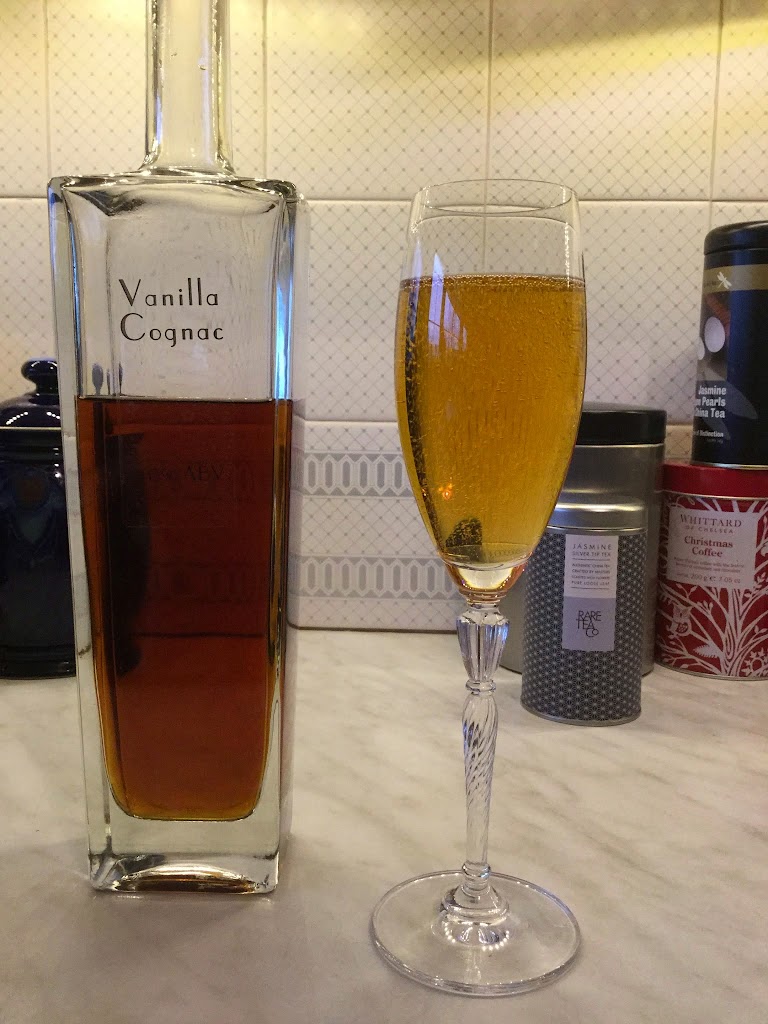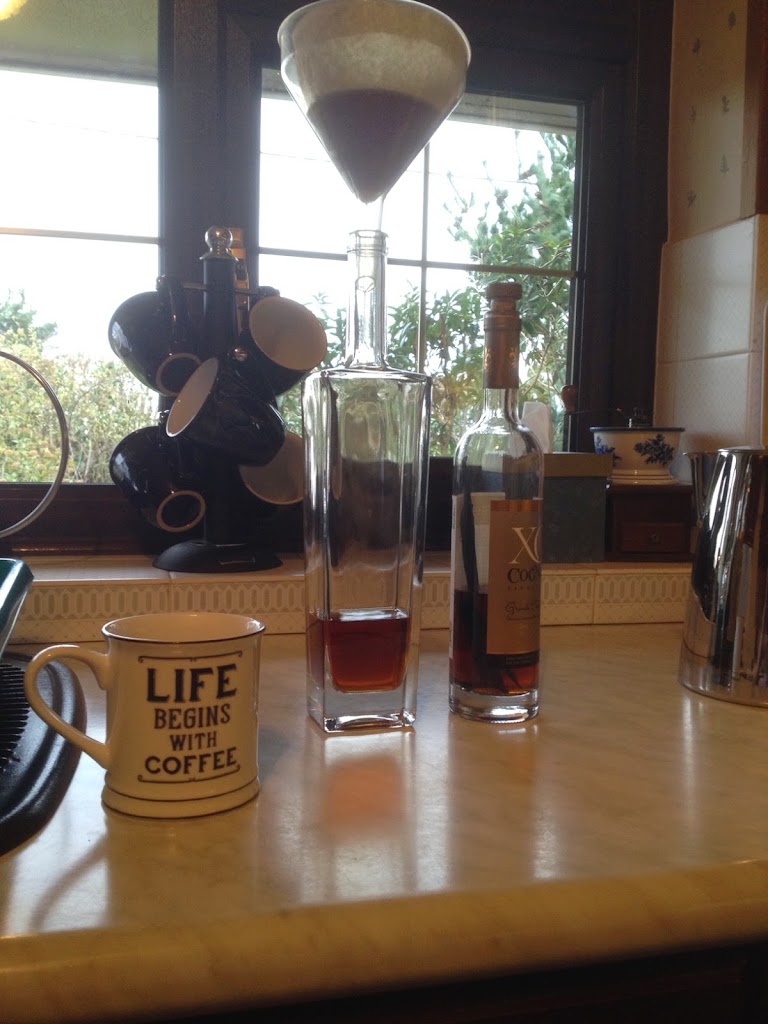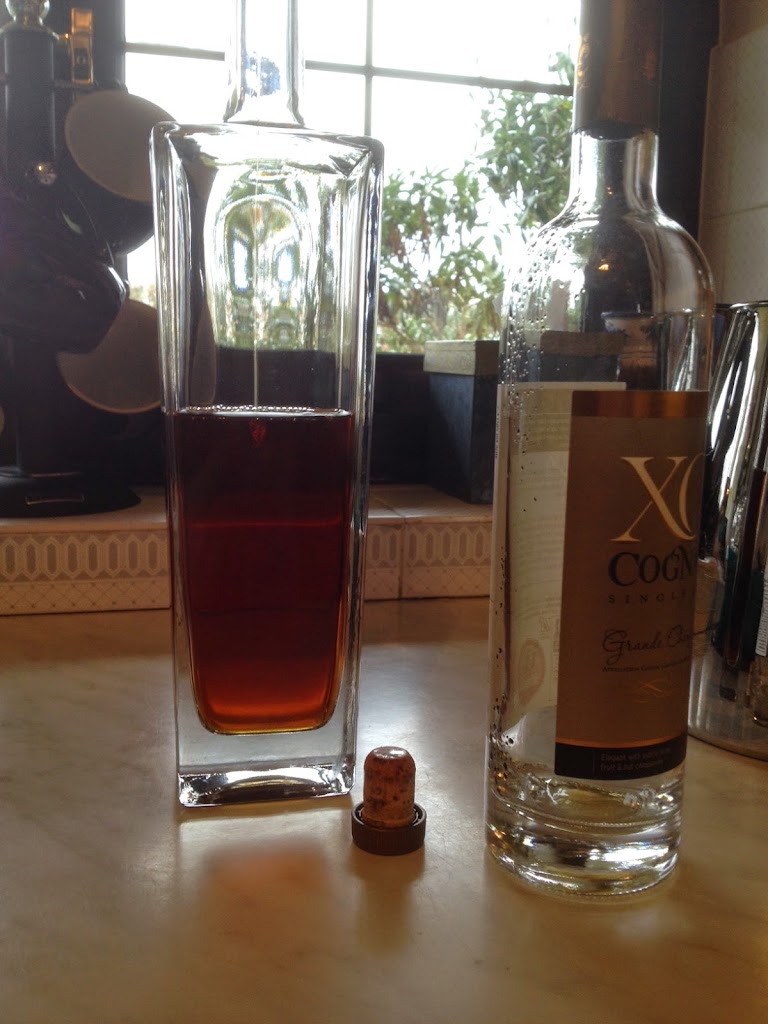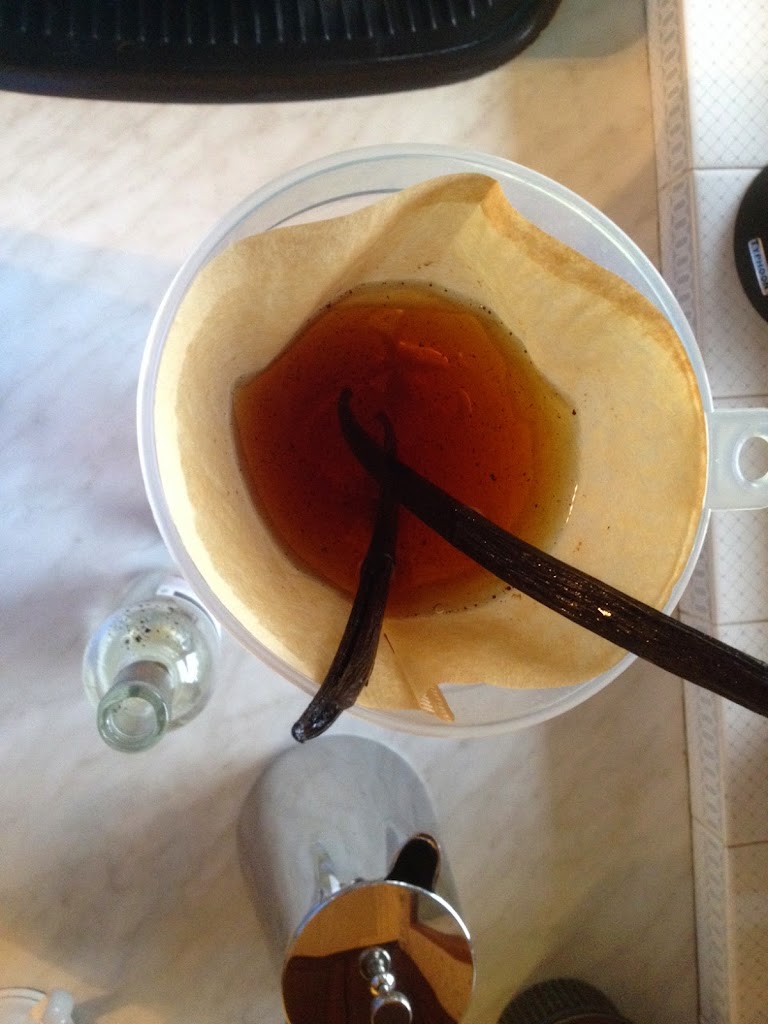 |
Prosecco upgraded with Vanilla Cognac
Pell Wall style |
Vanilla is one of the most useful ingredients in cooking, cocktails and perfumery. Its story is quite well known, so I’m only going to touch on some of the less well-known aspects here. My main purpose is to give details of a fine drink and a tincture that are easy to make at home.
So, first up, the drink: once upon a time, when I had more money and less sense I conducted a research project into the Champagne Cocktail – a hedonist’s research project rather than an academic one – I tried variations on the Champagne cocktail in every bar I could find that served one to try out the differences. Much was learned and more was drunk … including me from time to time.
Vanilla Cognac
 |
Filtering the cognac
(while drinking coffee) |
One of the things I discovered was a variation called the Vanilla Classic – sadly now both the bar where I found it and the key ingredient are gone. That ingredient was Navan – a fantastic vanilla Cognac made by the same people who produce Grand Marnier.
So why am I telling you about a drink you can’t buy? Well, it inspired me to have a go at my own and I’d like to share the process with you:
Take one bottle of good (XO ideally) supermarket cognac and put in two pods of Ugandan Vanilla – leave it where you’ll remember to shake it now and then for about four months. Take out the pods, filter the cognac but reserve the pods (you’ll see why in a bit).
 |
| Almost done |
Your Cognac should now be a beautiful mahogany colour and filled with complex vanilla flavours as well as all the richness of the fine brandy itself. You can drink it just as it is, add sugar to make something that more closely resembles Navan but I think it works fantastically used to upgrade a glass of Prosecco – which has enough sweetness of its own to sustain the extra alcohol – drink and enjoy!
Vanilla Tincture
 |
Don’t waste the beans after you’ve
made the vanilla cognac |
Now back to those pods: it seems a shame to let them go to waste and one of the lesser-known facts about vanilla is that in perfumery the absolute (see
this post for a definition of absolutes and other extracts) is normally used but it isn’t easy to work with, so for the small-scale perfumer a tincture is an alternative.
Here’s my technique for a tincture that’s a bit out of the ordinary:
Let the pods from your cognac-making dry out then chop them up, along with another fresh pod or two, weigh them all together and put the whole lot into nine times the weight of perfumers alcohol (so as to create a 10% Tincture), adding a shot or two of the cognac to the blend (I used about 50g). Just as with the cognac, wait for at least four months shaking whenever you think of it but at least every few days.
Result: vanilla cognac you can drink plus a vanilla tincture that you can use in perfume making at about 7 times the quantity you would the pure absolute. The cognac in the tincture gives it an extra complexity and also encourages more flavour out of the pods due to the water content – unlike many materials vanilla tinctures better in a lower strength alcohol
Resist the temptation to drink the tincture though …




